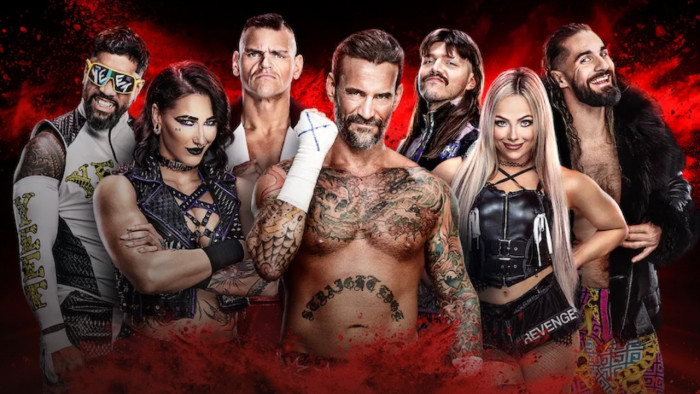The Fifa debacle has tainted the lustre of the World Cup. Ben Isaacs investigates where the planet’s biggest sporting event goes from here
You never forget your first time. For me it was Italia 90: the sound of Luciano Pavarotti belting out Nessun Dorma over a montage of classic clips; Roger Milla’s hips wiggling by the corner flag during Cameroon’s improbable run to the quarter-finals; Gary Lineker’s face as England’s players buried David Platt after his last-gasp goal against Belgium. It just seemed magical.
And even though the game has changed, and the world’s best players can be seen on TV almost every night of the week, the World Cup still brings the planet together in a way no other tournament can. Grown men don’t spend fortunes collecting Panini Champions League sticker albums – but last year’s World Cup collection drew record sales, with everyone from Ed Sheeran to Ed Balls turning to Twitter in an attempt to complete their books.
More impressively, when Ivory Coast qualified for the 2006 tournament in Germany, the players used their new-found influence to bring about a ceasefire in the nation’s bloody civil war. The World Cup is special.
And yet, in 2015, many fans (not to mention Labour leadership candidate Andy Burnham) are calling for England, Scotland, Wales and Northern Ireland to boycott the next one. It’s difficult to imagine you don’t know why – from the corruption within Fifa to the allegations of terrible human rights violations against 2022 tournament host Qatar. The real question is: how did it get this bad?

The Fifa Problem
Fifa has never been a universally popular organisation, but the current crisis began on 2 December 2010 – the day the hosts for the 2018 and 2022 World Cups were announced. The FA, along with bid ambassadors Prince William, David Beckham and David Cameron – ‘The Three Lions’ – were confident of securing the 2018 tournament. They finished last in the voting; the tournament went to Russia. And Qatar, a tiny but wealthy state with no existing football facilities and stifling summer heat topping 40C, beat both the US and Australia to the 2022 event. Former president Bill Clinton was supposedly so furious, he smashed a mirror on returning to his hotel room.

The Qatari result is perhaps the most concerning, but the situation regarding Russia raises questions of its own. The country spent a reported £30bn holding the 2014 Winter Olympics in a subtropical resort. In contrast, the 2010 games in Vancouver cost a ‘mere’ £4.5bn. The 2008 Olympics in Beijing had been the costliest ever, with each event costing £84m on average, but Sochi cost £330m per event. How? If the testimony is correct, it was down to corruption of the highest order. The documentary Putin’s Games features a contractor who says he was threatened he would be “drowned in blood” if he refused to pay kickbacks of up to 50 per cent of building costs.
We can’t look at the cost of previous events in Qatar because winning the rights to the 2022 World Cup is pretty much the first thing of sporting significance that has happened there (although the country will host the IAAF World Championships in 2019). After many months of absurd suggestions, such as playing games in air-conditioned stadiums, it was decided, for the first time ever, the World Cup would have to take place in winter.

Worse were the stories emerging about the number of migrant workers dying in the tournament’s construction projects. The Washington Post created an infographic that went viral, comparing the deaths for Qatar 2022 with other major events. However, these figures were from a 2014 report by the International Trade Union Confederation (ITUC) and included all Qatari building projects, not just those connected to the World Cup – the government of Qatar claims not a single person has died during the construction of its 2022 venues. But even if this is true, the ITUC data highlights Qatar, already known for having a ‘problematic’ human-rights record, as one of the worst places in the world to be a migrant labourer.
Despite all this, no one thought anything would change. Then, suddenly, on 27 May 2015, the FBI burst through Fifa’s door like Team America: Soccer Police to lead away Fifa Executive Committee [ExCo] members, ready to charge them with everything from racketeering to fraud.

Policing the world
So what happened? After months of hand-wringing and vague threats from the UK, why was it left to the US to finally tackle Fifa?
“No one else was going to be able to investigate actions around the world, demand the seizure of information and then have other countries arrest and extradite the people in question,” Ryan Rosenblatt, a US football writer at sbnation.com, tells ShortList from LA. “Between the various treaties the US has, as well as the political and legal power, it was able to do something no other country could.”
Jérôme Champagne, former director of international relations at Fifa, and a man many speculated would succeed Sepp Blatter, agrees. “The [2022] US bid was the best one,” he tells ShortList. “There was a feeling of frustration in the US. All the information that has come out about this can only have come from US intelligence.”
But Rosenblatt is keen to stress we shouldn’t paint the US as the sport’s white knights. “Everyone, the US included, knew what was going on and either took part or turned a blind eye for decades. The possibility that the US might be asked to host in 2022 has been a driving force in America’s interest in the Fifa scandal.”

The feeling around the world regarding Qatar 2022 is mixed, to put it mildly. “Africa is tunnel-visioned in respect to the various bribery and corruption allegations associated with the World Cup bids,” says Jimmy Aidoo, a Ghana-based blogger covering African football at sandalsforgoalposts.com. “Having delivered its World Cup in 2010, the general feeling you get is of a continent not too bothered about the powerplay going on with the US, Russia, Qatar, England and the rest of Uefa. Caf [Confederation Of African Football] boss Issa Hayatou was accused of selling his organisation’s vote to Qatar, but it didn’t gain much traction as it was immediately quelled with a denial. The workers’ deaths also remain under-reported.”
Rosenblatt adds: “The World Cup has opened a lot of Americans’ eyes to what Qatar has been doing for decades and its appalling human-rights record. That it took this for people to take notice is concerning, but now there is a greater spotlight on them and people are demanding change, with whatever power they have.”
But if you think fans in the Middle East don’t care about this, you’re mistaken. “There are rarely any people calling for the World Cup to be taken off Qatar, but they certainly want to help fix things,” says Hamoudi Fayad, the co-founder of Asian football site ahdaaf.me. “Migrant workers have been suffering. We want Qatar to create the best World Cup ever, but not with all these deaths.”
Ahmed Hashim, a Qatar-raised football writer, says the situation is nowhere near as bad as the Western media has made out, saying he believes no workers have died at the stadiums and points out that “all contracted companies have to abide by a worker welfare charter. The challenge now is to extend the scope of this charter to other areas and companies where worker abuse has happened.
I believe that the World Cup is a golden opportunity for human rights and labour organisations to ensure these reforms are properly implemented by the government and maintained for the future. Qataris tend to believe that this [media coverage] is all part of an agenda to take the World Cup away from an ‘Arab Muslim’ country. The media [in Qatar] has made repeated references to racism, hypocrisy and double standards, as have some statements from government officials.”
Meanwhile, Champagne is adamant that Qatar 2022 will be good for the planet. “With the world as complicated as it is today, it’s very important [the tournament] is finally staged in a country with an Arab culture,” he says. But what about the workers? “Have you heard of any government severing relations with Qatar over this?” responds Champagne. “Has any airline in Europe or the US stopped flying to Qatar because of the plight of workers who built the terminals? Human rights need to play a part in Fifa, but this is hypocrisy.”

All bad, all the time?
It’s easy to paint Fifa as super-villains but it’s not that simple. Even ShortList’s source at the FA was at pains to point out that, away from the top level of management, Fifa has done some fantastic work developing the game and pointed to the success of this year’s Women’s World Cup as an example. Furthermore, Champagne states: “This case isn’t against Fifa, it’s against the confederations that come before the ExCo. It’s about officials from Concacaf [Confederation Of North, Central American And Caribbean Association Football] and Conmebol [the sport’s governing body in South America]. Fifa is a federation of 209 FAs, but the confederations are not members. In the second investigation taking place in Switzerland, relating to the votes for the 2018 and 2022 World Cup, 22 members voted but only Blatter is elected. The rest are sent by confederations.” But surely Fifa has to take responsibility for this? “We need to give power back to the FAs rather than the continental bureaucracies,” Champagne says.
This is unlikely to appease many. João Paulo Tardin, a fan from Rio de Janeiro, protested at the 2014 World Cup and tells ShortList: “Fifa makes me sick. When you take power for a long time without a true vote or real scrutiny, like it has, then there will be corruption. Now corruption is confirmed, maybe there will be change.”
Europe’s governing body used to dominate Fifa until Brazilian João Havelange shook things up in 1974. But that’s not to say it’s now on the outside looking in. “Uefa controls a third of the government of Fifa,” says Champagne. “It has eight of 24 seats and now it wants to pretend everything is the fault of Mr Blatter? Outside Western Europe the view is that the success of the Champions League does not give Uefa a divine right to regulate and govern world football. Too many people [in Uefa] believe what is good for, say, Real Madrid or Chelsea is good for world football. In reality, that may not even be good for football in Europe or even in Spain or England.”
Uefa, while looking to protect its members’ own interests has, in effect, done the opposite. By alienating the rest of the world it has found itself too isolated to effect change. Champagne points out that any Fifa presidential candidate put forward by Uefa is doomed because of this. There has been speculation that Uefa could break away from Fifa and form its own global tournament (Rosenblatt even points out that some fans in the US would like to see their national federation break away with Uefa), but be careful what you wish for. Although the Copa America has invited non-Conmebol members such as Japan, the USA, Jamaica and even Spain to take part, it always had Fifa’s blessing. If Uefa went its own way, non-Uefa registered players would be barred from all European leagues by Fifa. Goodbye, Yaya Touré, Roberto Firmino and Alexis Sánchez. The top clubs have too much power to let Uefa pull a stunt like that. So if you want the home nations to play in a global tournament, the only way is Fifa.

Stay or go?
So, all the evidence is in. What’s the next step? Should we genuinely consider a boycott? In the course of our research, the IFA in Belfast and FAW in Cardiff failed to respond to any of our questions. The SFA said it would not be adding to previous statements (in short: it wants Blatter gone and for reform to happen) and pointed out it has called for change since 2011.
Within the FA, there’s the understanding that there have been no formal discussions about a boycott, rather it would fall in line with Uefa’s recommendations. Bear in mind, however, that Uefa president Michel Platini actually voted for Qatar. “If they don’t want to participate, fine,” says Champagne. “But boycotting will solve nothing.” He believes that by the time the 2018 World Cup kicks off in Russia, these scandals “will all be forgotten”.
This seems unlikely. But the truth is, the FA can’t stand alone. And, simply, the rest of the home nations don’t have the standing of say, Germany, Spain or Italy. Only if the world’s footballing superpowers – and by that, we mean the ones that will generate the most interest and income, which is why we can include England – unite in a boycott will anything be done. It would shock the sporting world and may even force radical change across Fifa and the confederations. Will it actually happen? Well, don’t cancel that Russian Airbnb you’ve reserved just yet.
(Illustrations: Justin Metz/Images: PA/Getty)
Latest
Related Reviews and Shortlists










